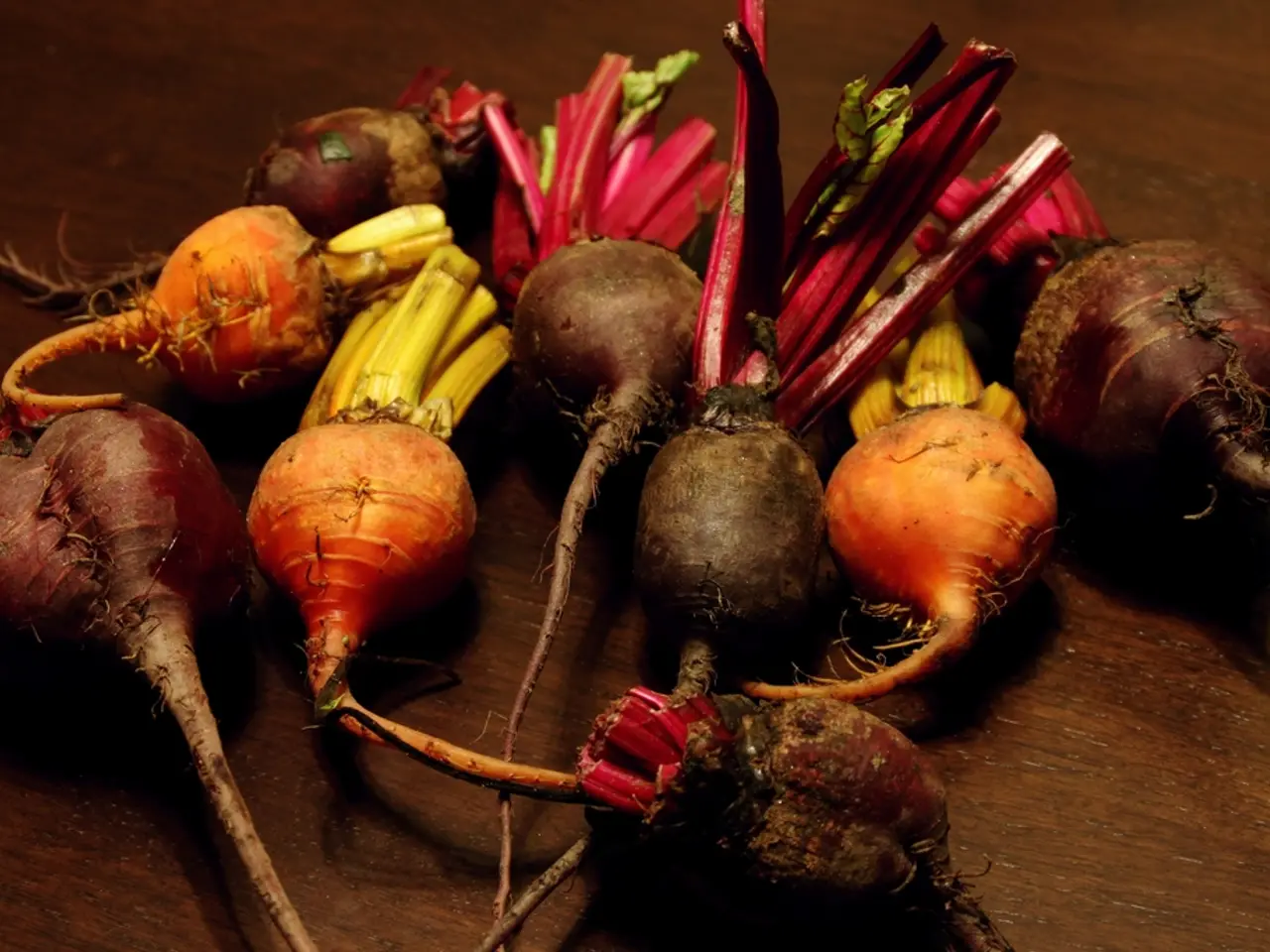Which Form of Beetroot Offers Greater Nutritional Benefits: Raw or Cooked?
Beetroot, a vibrant root vegetable, is a powerhouse of nutrients. Whether you prefer it raw or cooked, both forms offer unique benefits. Here's a breakdown of the key differences between raw and boiled beetroot.
Nutrient Profile
Raw beetroot is generally more nutritious than boiled beetroot, retaining higher levels of vitamins and antioxidants, particularly vitamin C and some phytochemicals. Boiling causes some loss of these heat-sensitive nutrients.
Vitamin C and Antioxidants
Vitamin C is important for iron absorption and immune function. Raw beetroot preserves more vitamin C and antioxidant compounds because boiling causes some loss of these heat-sensitive nutrients.
Fiber Content
Both raw and boiled beets provide fiber, important for digestive health. Some soluble fiber might leach out into cooking water during boiling.
Carbohydrates and Calories
These remain similar in raw and boiled beets, though boiling may slightly reduce sugar content by leaching into water.
Digestibility
Boiled beets are easier on the gut and better tolerated by some people due to softened fiber and reduced FODMAP content.
Minerals
Minerals tend to be relatively stable, but cooking can cause some minor losses depending on method and water use.
Versatility and Cooking
Boiled beetroot has a softer texture and a sweeter, milder flavor, making it more versatile in cooking and suitable for adding to soups, stews, salads, and purees. Cooking can increase the availability of some nutrients in beetroot, making certain antioxidants more bioavailable.
Nutrient Losses and Gains
Boiled beetroot contains less vitamin C than raw beetroot. Boiling also reduces the amount of oxalates in beetroot, making it safer for those at risk of kidney stones. Boiling softens beetroot, making it easier to chew and digest, particularly beneficial for people with sensitive stomachs or digestive issues.
In terms of calories, carbs, protein, fat, and fiber, boiled beetroot has slightly higher values compared to raw beetroot.
Balanced Nutrition
Eating raw beetroot maximizes vitamin and antioxidant intake, while eating boiled beetroot offers better digestive tolerance and versatility in meals. Combining both forms across your diet can provide balanced nutritional benefits.
[1] NutritionData. Self Nutrition Data - Beetroot, raw. (n.d.). Retrieved from https://nutritiondata.self.com/facts/vegetables-and-vegetable-products/2625/2 [2] NutritionData. Self Nutrition Data - Beetroot, boiled, drained, without salt. (n.d.). Retrieved from https://nutritiondata.self.com/facts/vegetables-and-vegetable-products/2628/2 [3] ACS. Beetroot: Nutrition, Benefits, Risks, and Recipes. (2020, November 20). Retrieved from https://www.acs.org/content/acs/en/chemistry/resources/chemistryinanystate/articles/2020/november/beetroot.html




